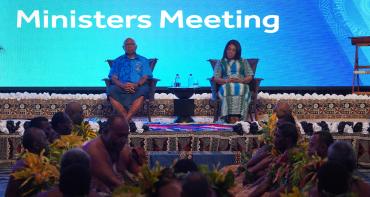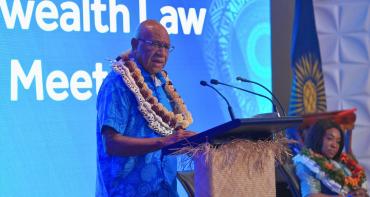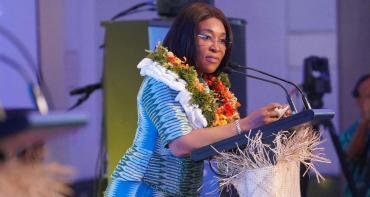The challenges of preserving traditional political culture while embracing modernity is focus of dialogue
The continuing but varied significance of traditional governance based on local cultures in Commonwealth Pacific countries, and the importance of integrating and adapting that governance where possible into formal democratic norms were discussed at a conference for the smallest island states in the region.
HRH Princess Mele Siu’ilikutapu Kalaniuvalu Fotofili of Tonga outlined the evolution of governance in her country at the conference in Tonga's capital Nuku’alofa on 15 June 2012, co-organised by the Commonwealth Secretariat and the Secretariat of the Pacific Community.
She said local culture places great importance on kinship values and Christian beliefs, which form the bedrock of Pacific identities. She said wise governance will guide the people of the Pacific into the future.
The two-day conference brought together cabinet ministers, parliamentarians and senior officials from Kiribati, Nauru, Samoa, Tonga, Tuvalu, Cook Islands and Niue. Discussions focused on traditional governance in the South Pacific, including the Faa Matai governance system in Samoa based on the leadership of chieftains in village-based governance, and the tensions between this style of governance and constitutional law.
Sir Ieremia Tabai, architect of Kiribati’s electoral system and founding president of Kiribati, spoke on the Kiribati electoral system and state legitimacy and reminded delegates that while it was important to “plug into the world grid” so as to maximise economic opportunities, leaders must ensure that development produces benefits for the people whose interests they serve.
”At the end of the day,” he argued, “this is the core principle of democratic accountability and transparency."
Other governance related areas covered included the role of the public service commission and the cabinet office. Dr Faamausili Matagialofi, former CEO and Public Service Secretary of Samoa, outlined the initiatives which produced significant public reforms in Samoa during the 1990s, including the CEO forum and Executive Leadership Development Programme.
Deliberations on the final day focused on finding common priority issues for the way forward.
The meeting acknowledged and recognised that the very small island states in the Pacific are still very young democracies seeking ways to integrate formal democratic practices into their own traditional governance system. This poses a major challenge for very small island states which face the challenges of geographical isolation, limited human resources and access to data, as well as the emigration of technically skilled people also known as ‘the brain drain’.



